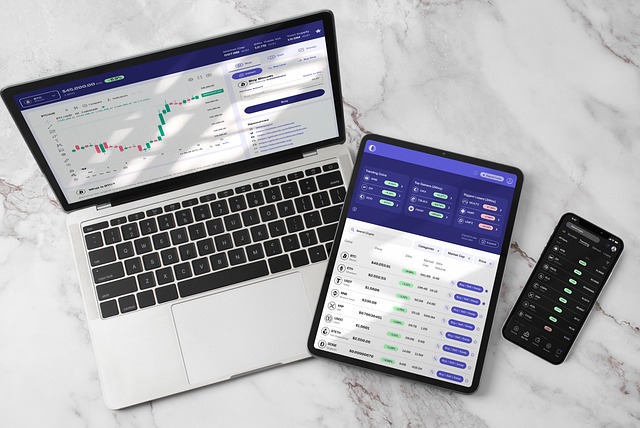Binance, a dominant global cryptocurrency exchange with operations in over 180 countries, leads the market with its massive user base and high daily transaction volumes. As a result of its size, Binance heavily influences regulatory conversations worldwide due to its significant impact on consumer protection, money laundering prevention, and tax evasion. The company proactively navigates evolving regulations through discussions with global bodies, implementing strict AML/KYC measures, and tailoring services to local laws. Binance's goal is to establish industry standards while maintaining a leading position in the dynamic crypto regulatory landscape.
Binance, a global crypto behemoth, has played a pivotal role in shaping the evolving landscape of cryptocurrency regulations. With a significant market share, its presence spans over 180 countries, making it a key player in navigating the complex web of regulatory challenges. As the crypto space matures, so does the need for robust regulation. This article explores Binance’s engagement with regulatory bodies, the challenges it faces, and how its platform adapts to changing rules. We also delve into its future outlook as a potential game-changer in global cryptocurrency regulations.
- Binance's Global Presence and Market Share in Cryptocurrency
- The Need for Regulation in the Crypto Space
- Binance's Engagement with Regulatory Authorities
- Challenges Faced by Binance in Compliance and Licensing
- Impact of Regulatory Changes on Binance's Operations
- Binance's Platform: Features and Measures to Enhance Compliance
- Future Outlook: Binance's Role in Shaping Global Cryptocurrency Regulations
Binance's Global Presence and Market Share in Cryptocurrency

Binance, one of the world’s largest cryptocurrency exchanges, has established a significant global presence since its launch in 2017. With operations in over 180 countries and territories, Binance has quickly become a dominant force in the cryptocurrency market. Its vast user base, boasting millions of customers worldwide, underscores its market dominance. This expansive reach allows Binance to facilitate billions of dollars’ worth of cryptocurrency transactions daily, making it a key player in shaping the industry’s trajectory.
The exchange’s substantial market share is not only indicative of its popularity but also of its ability to adapt and respond to evolving regulatory landscapes. Binance has shown a remarkable capacity to navigate stringent regulations while maintaining its position as a top crypto trading platform. As countries worldwide introduce or strengthen cryptocurrency rules, Binance’s global strategy and diverse user base position it advantageously to meet these challenges head-on.
The Need for Regulation in the Crypto Space

The cryptocurrency market, with its rapid growth and decentralized nature, has presented both opportunities and challenges, especially regarding regulation. As platforms like Binance continue to facilitate global trade, the need for clear guidelines becomes increasingly evident. The absence of centralized control in crypto has led to concerns about consumer protection, money laundering, and tax evasion.
Binance, as one of the largest cryptocurrency exchanges, plays a pivotal role in shaping regulatory conversations. Its vast user base and market influence mean that any regulatory changes can significantly impact the industry. Effective regulation is essential to ensure the stability and legitimacy of the crypto space, fostering trust among investors and encouraging mainstream adoption.
Binance's Engagement with Regulatory Authorities

Binance, one of the world’s largest cryptocurrency exchanges, has actively engaged with regulatory authorities worldwide to navigate and shape the evolving landscape of crypto regulations. This engagement is a strategic move by Binance to ensure its compliance with global standards while fostering healthy industry practices. The company has been involved in numerous discussions and collaborations with governments and financial regulators, aiming to provide clarity on various aspects of cryptocurrency, including anti-money laundering (AML) and know-your-customer (KYC) measures.
Through these interactions, Binance seeks to address regulatory concerns, promote investor protection, and enhance the overall legitimacy of the cryptocurrency market. By participating in regulatory forums, the exchange can anticipate and adapt to changing rules, thereby maintaining its position as a leading player in the crypto space. This proactive approach by Binance demonstrates its commitment to operating within a structured legal framework while continuing to drive innovation in the industry.
Challenges Faced by Binance in Compliance and Licensing

Binance, one of the world’s largest cryptocurrency exchanges, has faced significant challenges in navigating the evolving regulatory landscape. As global governments scramble to devise frameworks for digital assets, Binance has had to grapple with a patchwork of regulations across different jurisdictions. This complexity poses hurdles in obtaining necessary licenses and ensuring full compliance.
The exchange’s rapid growth and its status as a global player have drawn scrutiny from financial regulators worldwide. Issues like anti-money laundering (AML) and know-your-customer (KYC) compliance, consumer protection, and data privacy have become focal points for regulatory bodies. Binance has had to invest heavily in refining its policies and systems to meet these standards while adapting to the ever-changing regulatory environment.
Impact of Regulatory Changes on Binance's Operations

Binance, one of the world’s largest cryptocurrency exchanges, has had to navigate a complex and ever-changing regulatory landscape. Regulatory changes have significantly impacted its operations, forcing the platform to adapt and evolve. As governments around the globe grapple with how to classify and regulate cryptocurrencies, Binance has been at the forefront of these shifts, adjusting its policies and services accordingly. For instance, following the introduction of stricter anti-money laundering (AML) and know-your-customer (KYC) regulations, Binance implemented enhanced verification procedures and blocked transactions from countries subject to sanctions.
These regulatory adjustments have not only influenced Binance’s internal processes but also shaped its global expansion strategy. To comply with local laws, Binance has had to tailor its services, sometimes even discontinuing certain offerings in specific regions. This dynamic environment presents both challenges and opportunities for the exchange. While regulatory changes may restrict its ability to serve certain markets, they also open doors for Binance to establish itself as a leader in compliance, setting industry standards and fostering trust among investors.
Binance's Platform: Features and Measures to Enhance Compliance

Binance, one of the world’s largest cryptocurrency exchanges, offers a robust platform that goes beyond trading. It incorporates advanced features designed to ensure high levels of compliance with global regulatory standards. The exchange employs sophisticated anti-money laundering (AML) and know-your-customer (KYC) procedures, including real-time transaction monitoring and identity verification.
Binance also provides tools for users to lock in their funds for a specified period, promoting responsible trading practices and enhancing security. Additionally, the platform supports various regulatory-compliant payment methods, facilitating easier adherence to local laws. These measures position Binance as a leader in navigating the evolving cryptocurrency regulations landscape while offering a user-friendly experience.
Future Outlook: Binance's Role in Shaping Global Cryptocurrency Regulations

As the cryptocurrency market continues to gain mainstream adoption, global regulators are increasingly collaborating to establish a unified framework for oversight. Binance, one of the world’s largest cryptocurrency exchanges, is not just a passive spectator in this evolving landscape; it’s at the forefront, actively engaging with regulatory bodies worldwide. Through its partnerships and initiatives, Binance aims to bridge the gap between traditional finance and crypto, ensuring a more inclusive and understandable digital asset ecosystem.
Looking ahead, Binance’s influence on global cryptocurrency regulations is expected to grow. Its expertise in handling vast volumes of transactions and managing security protocols can provide valuable insights to regulatory authorities. Moreover, Binance’s global presence allows it to facilitate cross-border discussions, fostering collaboration among regulators to create a more harmonized regulatory environment for the crypto industry.
As the cryptocurrency market continues to evolve, so too does the need for robust regulation. Binance, with its global presence and significant market share, plays a pivotal role in shaping this landscape. Through engagement with regulatory authorities and implementing stringent platform measures, Binance strives to balance innovation with compliance. While challenges persist in securing licenses and navigating varying legal frameworks, the company’s proactive approach suggests a promising future where Binance fosters a more regulated and inclusive crypto ecosystem worldwide.
